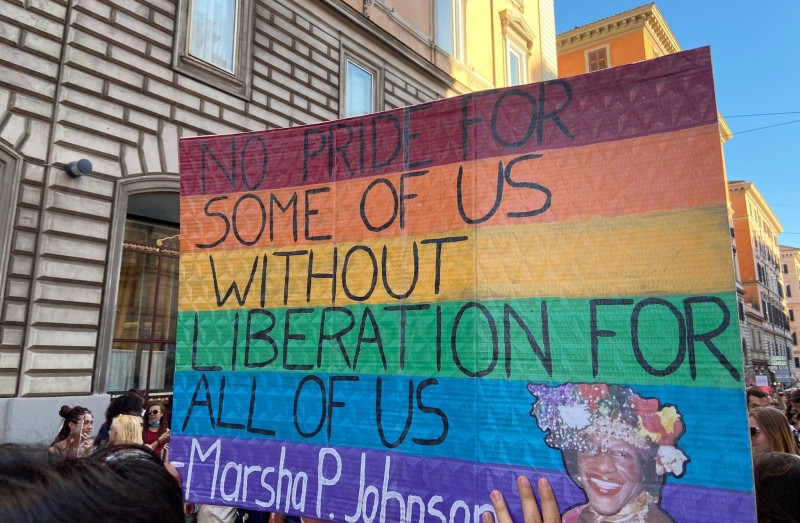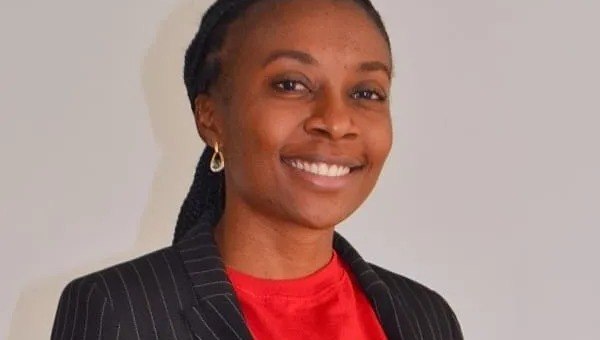Bringing Queer Culture to JCU: Meet Student Miguel Avides.
John Cabot University student Miguel Avides is from Porto, Portugal. An International Affairs major and Psychology minor, he will be the Vice President of the JCU Queer Alliance starting in Fall 2021.
Miguel was recently interviewed by JCU ‘s Director of Web Communications, Berenice Cocciolillo.

JCU student Miguel Avides
What made you decide to come to JCU?
I was born and raised in Portugal, but my mother is German and I attended the German high school of Porto. Coming from a very multicultural environment I always had a fascination with different peoples and cultures. I was attracted to the duality that JCU has as an American university in Rome. The small class sizes and close relationships with professors were also important factors for me.
You are majoring in International Affairs with a minor in Psychology. How did you decide on this combination?
I always wanted to dedicate my education to my goal of becoming an agent of change and helping others. The International Affairs major has helped me tremendously in achieving this. One semester into JCU I decided I wanted to add a minor. I took a psychology class and fell absolutely in love with the subject; understanding how the human mind works has proven very useful.
You spent a semester studying abroad at the New School in New York City through JCU’s Direct Exchange Program. What was that experience like?
Going to the New School in NYC was one of the most cathartic moments of my life. Especially in the terms of my own identity, it was only in New York through professors and especially communities that I started a wonderful queer journey. It feels that conversations there are light-years ahead but bringing that mentality and inserting it into European dialogues is another journey in and of itself. Although Rome is a wonderful city, it does not allow for a lot of queer growth, while in New York it was encouraged.
What inspired you to become involved in the Queer Alliance?
As a queer person in Rome, I could no longer deny that I needed a community to support me. I wanted to become more involved in helping my queer friends and in providing safe spaces for a group that is marginalized by every aspect of heteronormative society. I wanted to connect with those around me and I wanted to have a sense of belonging. I also wanted to fight for what I believe in. Even at JCU, the effects of discrimination are not unfelt. The Queer Alliance has given me and many others a platform to speak.
How would you describe the mission of the club? What are the challenges that the club has faced in carrying out its mission?
It’s hard to define anything that is queer into a rigid set of mission objectives or goals. Queerness is defined by fluidity and thus while the mission of the club is to build a community of queer people in our University, our goals are constantly changing. Nonetheless, one of the most important aspects of the Queer Alliance is that we listen. Being queer is often not easy and the world can feel cold and scary, so giving a platform to marginalized people remains our most important mission.

Roma Pride, June 21, 2021
The challenges we face are multifaceted and intersectional, we often face barriers when trying to insert these fluid identities into more rigid and heteronormative institutions. Queer oppression often comes not only from the fact that you are queer, it also shares intersectional dimensions of misogyny, racism, and colonial thought.
In your opinion, what events and activities organized by the Queer Alliance have been particularly meaningful?
I think the most useful activities were structural dialogues about what needs to change and be improved. Discussions about accessible queer healthcare, non-binary and/or gender non confirming identities, and queer-focused therapy have had a real impact within JCU.
The JCU Counseling Center offers queer-affirmative counseling. How important is this type of counseling at a university?
Queer-affirming counseling is absolutely essential. Our problems are often different from our non-queer companions and thus special sensitivity and knowledge are required. Therapists need to know how to correctly address queer issues like questions about gender, sexuality, or worries specific to queer identities. Knowing how to direct people to queer-friendly environments is essential.
What does the Alliance have planned for the Fall 2021 semester?
A lot of things. We are very much looking forward to finally returning to a sense of normality. Being queer is often about occupying space and thus we have a couple of activities planned around that. We also want to bring more queer culture into JCU. The introduction for example of a voguing workshop or a ball is in the works. We can especially thank trans women of color and the queer Latin community for being pillar stones in our community and creating a queer sense of culture, like the ballroom scene. It was a trans woman of color, Marsha P. Johnson, who was a key figure in resisting police during the Stonewall riots in NYC in 1969.
What are some ways that members of the JCU community can be better LGBTQ+ allies?
Being an ally is not a passive action but an active one. Using your cis-hetero privilege to provide platforms and to listen is essential. Speak out when you see any form of discrimination happening, listen to queer people and especially trans and non-binary people. Understand that your silence is complacent in deepening an already heteronormative and oppressing society.
Is there anything else you would like to add?
I would like to add that if you are queer and at JCU or planning to come to JCU, remember that, if you choose so, you will have a community that will support you.





